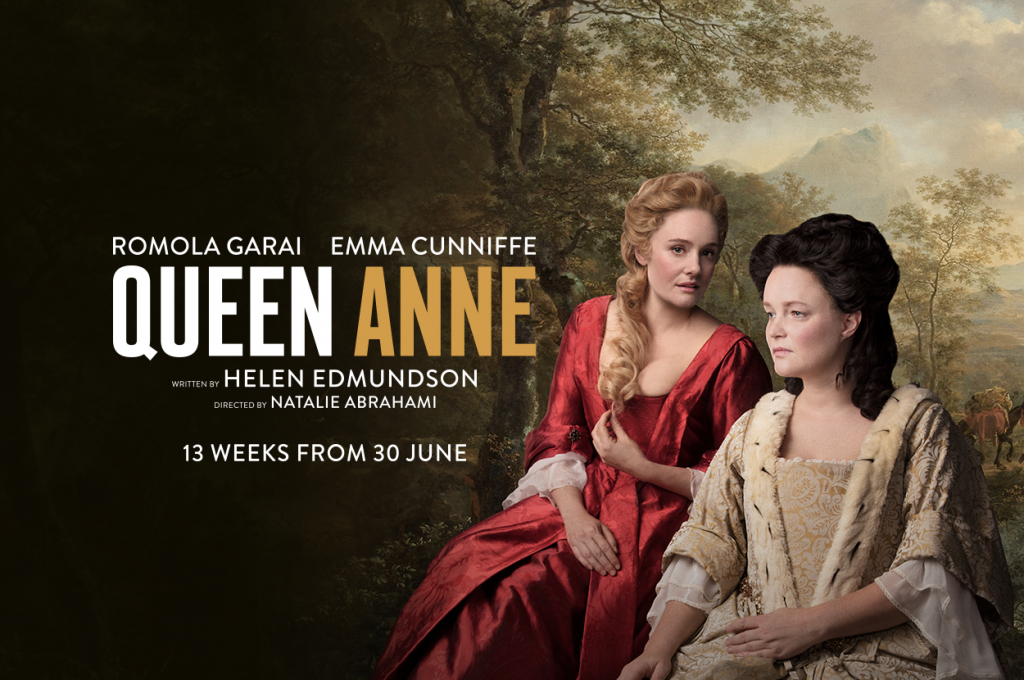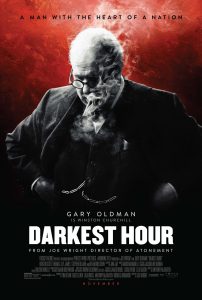
Bulletin #112 - Oct 2017
Queen Anne Rules

October 15, 2017
Review by ANNE SEBBA
The bravest soul. The keenest mind. The greatest woman of her time. Is that how Sarah Churchill, Duchess of Marlborough, is remembered to posterity?
These powerful words are Sarah Churchill’s cri de coeur as she exits the stage of Queen Anne, a gripping new play about the twelve-year reign (1702–14) of the last Stuart Queen of England and her friendship with the wife of the first Duke of Marlborough, John Churchill. But Sarah is by this time a desperate figure who fears that the power and influence she craves, and has previously enjoyed, is slipping from her grasp. When the play opens, the nervous and sickly Princess Anne hangs on her friend’s every word. But the former Sarah Jennings pushes too hard, manipulating, scheming, and determined to wield power over the Queen, her intimate and vulnerable confidante since childhood.
Eventually Anne stands up to Sarah and rebukes her for telling her how she should think, insisting she is quite capable of thinking on her own. She resents the implication that she is devoid of understanding. She refuses to engage with her erstwhile bosom friend and imperiously sweeps out telling her, repeatedly, that anything she wants to say can be put in writing. It is a glorious theatrical moment.
The play, written by Helen Edmundson and initially commissioned by the Royal Shakespeare Company, was first performed in Stratford-upon-Avon in 2015 and, following excellent reviews, transferred to London, where it ran this past summer at the Theatre Royal Haymarket. Queen Anne studies the triangular relationship between Anne, Sarah, and the impoverished and articulate Abigail Hill, who rises from servant girl to become, as Lady Masham, the new confidante of the monarch, replacing the jealous Sarah. The drama flows from the changing relationship between these three women, each exerting power and influence in very different ways. Edmundson cleverly handles the shifting dynamic, set against key issues of the day such as the growing opposition between Whigs and Tories while Britain’s future as a Catholic or Protestant nation hung in the balance. How refreshing to see this period of history examined through the prism of three women at the centre of power. Additionally, all three have separate relationships with husbands and are portrayed as mothers as well as courtiers. Queen Anne famously had at least seventeen pregnancies, although only three of her babies survived past infancy and one son died aged eleven of smallpox. Sarah’s son and heir, Jack, also died of smallpox aged seventeen and the pain and grief, however well controlled, suffered by these women is never far below the surface.

2025 International Churchill Conference
And yet Sarah insists after one of the most sexually charged scenes in the play, “I am so much more than her.” Played convincingly by Romola Garai, Sarah has a natural glamour (she is always dressed in red) and overt sexuality. Trying to manipulate her friend, she threatens to walk out if her advice is not heeded but returns when Anne pathetically begs her to give her a kiss, but not, as demanded, on the lips. Emma Cunniffe’s Anne, overweight and suffering from gouty legs, is in need of reassurance and affection, not sex. But she lies down, curled up close to Sarah, which enables her to fall asleep. Tellingly, Sarah escapes immediately. Whether or not there was once sexual passion between the two women is uncertain but alluded to in Sarah’s later threat to expose intimate letters.
There is a lot of history to cover in this play, which Helen Edmondson manages with a light touch. She avoids the “history lesson” label partly thanks to the entertainingly bawdy songs, most but not all especially written for the play, which give a nod to the prevailing satire of the days and its most notable practitioners, Jonathan Swift and Daniel Defoe. Marlborough makes a single reference to his earlier period in the Tower of London and, as Anne becomes increasingly sure of herself as monarch, there is plenty about her concern over the high cost of war in terms of men and money. Who is benefitting from this? Clearly John Churchill is and the play ends with him facing corruption charges and determined not to return to the Tower. Sir Winston Churchill grew up hero-worshipping the first duke, in particular his military victories, and in the 1930’s determined to vindicate this illustrious ancestor from Victorian criticism, wrote a four volume account Marlborough: His Life and Times.
Edmundson however is more concerned with the reputation of his wife, the first Duchess, and her conviction that she was superior to the Queen and would be remembered as such by future generations. This play leaves that hope in some doubt.
Anne Sebba’s most recent book is Les Parisiennes: How the Women of Paris Lived, Loved and Died in the 1940’s (Orion £9.99 and St Martin’s Pres $17.99)
Subscribe
WANT MORE?
Get the Churchill Bulletin delivered to your inbox once a month.





